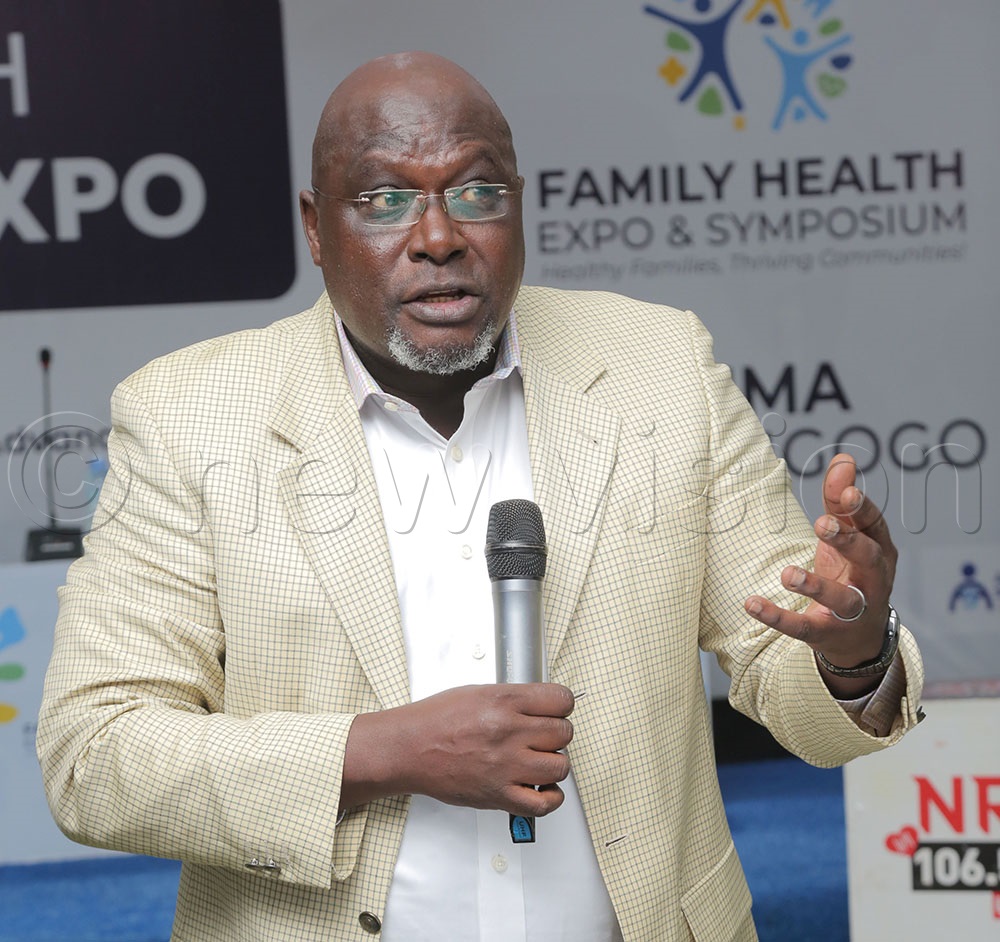Self-medication among Ugandans alarms health experts
Potential risks of self-medication include incorrectly self-diagnosing and taking the wrong medication, which leads to several complications, hence making it harder to treat illnesses.
Health experts have raised concerns over the increasing practice of self-medication among the general public.
By Agnes Kyotalengerire
Journalists @New Vision
KAMPALA - Health experts have raised concerns over the increasing practice of self-medication among the general public.
A study dubbed: The Nature of Self-medication in Uganda, published in January 2025, showed that self-medication is common in Uganda, but the rates vary across different age groups.
The same study found that adults had a prevalence of 52% compared to 33% in children, while females reported a slightly higher prevalence (68%) than males (66%).
The study findings revealed that antibiotics are the commonly self-medicated drugs, and ease of access to medications, perceived cost effectiveness, long hospital waiting time, home storage of drugs (leftovers), and perceptions of minor illnesses were key contributors to self-medication behaviour.
The study was conducted among 9,113 participants across different demographics and regions of Uganda.
With the limited financial aid and a spike in disease burden, several deem it fit to intervene to reduce mortality and morbidity.
The executive director of Uganda Health Care Federation, Grace Kiwanuka, said the practice of self-medication became increasingly problematic during the COVID-19 lockdown, since people were buying medicines off the counter.
Kiwanuka noted that majority who were taking medicines such as dexamethasone developed symptoms of diabetes and other health complications.
Dr Timothy Musila assistant commissioner health services, private sector, addressing participants during the launch of the Family Health Expo and Symposium on Thursday, at Imperial Royal Hotel in Kampala. (Credit: Agnes Kyotalengerire)
“Once you develop diabetes, it means you are going to manage it with medication for life, which is costly,” she said.
Kiwanuka further noted that the private sector is currently grappling with the challenge of people going to pharmacies to buy medicines rather than getting proper diagnosis from health professionals.
Potential risks of self-medication include incorrectly self-diagnosing and taking the wrong medication, which leads to several complications, hence making it harder to treat illnesses.
In some instances, dangerous drug interactions may occur due to incorrect dosage or medication misuse.
“We must ensure people understand the importance of diagnosis and testing so as to make informed decisions in terms of what medications to take,” Kiwanuka said.
She made the remarks during the launch of the Family Health Expo and Symposium at Imperial Royal Hotel in Kampala recently.
Scheduled for August 1 to 3, 2025, at UMA showgrounds in Kampala, the family health expo and symposium aims to educate Ugandans on how to manage their health at home.
In addition, it will demystify and help the public know where to go for proper diagnosis and treatment.
Organised by Uganda Healthcare Federation, together with the Ministry of Health and Copious, the event will also explore practical solutions aimed at reducing disease burden, improving access to affordable healthcare and enhancing the overall health system in line with Uganda’s commitment to preventive versus curative care priorities,” Kiwanuka said.

The executive director of Uganda Grace Ssali Kiwanuka addressing participants during the launch of the Family Health Expo and Symposium at Imperial Royal Hotel in Kampala. (Credit: Agnes Kyotalengerire)
She further noted that the country’s health care system continues to face high morbidity and mortality rates, driven by preventable diseases.
“Many individuals and families continue to suffer and die from preventable illnesses largely due to lack of awareness about preventable measures and early intervention strategies,” she said.
In this regard, preventative and primary healthcare interventions are critical to reducing the disease burden and improving quality of life.
The presiding apostle of the BornAgain Faith, Dr. Joseph Sserwadda, advised the pubic to avoid the practice of self-medication and instead seek medical help when sick, so as to get proper diagnosis and treatment.
Health ministry
Dr. Timothy Musila, the assistant commissioner for health services (private sector coordination) at the Ministry of Health, said many times people end up in hospitals to treat ailments they could have avoided.
Dr. Musila noted that out-of-pocket expenditure on health care is the biggest single cause of household impoverishment in Uganda.
“Families sell their assets to raise money to pay medical bills for the sick. Consequently, they remain impoverished even after the patient is not cured,” Dr. Musila noted.
According to the World Bank, about 40% of total Ugandan health care expenditures are out-of-pocket, and modelled data suggests nearly 80% of the population are at risk of catastrophic or impoverishing expenditures due to illness.
Musila said a lot of these resources can be saved if Uganda can reduce the burden of disease.
Brian Bogere, the executive director for Copious Health Services, called for collaboration and partnership, saying the religious leaders should speak to their brethren, while cultural leaders should use cultural meetings to effect mindset change regarding health.
